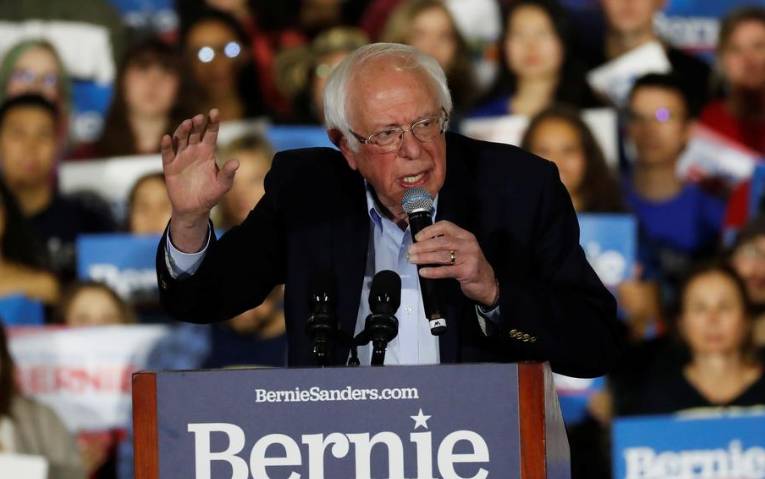×
The Standard e-Paper
Stay Informed, Even Offline

Democratic 2020 U.S. presidential candidate Senator Bernie Sanders waves to supporters during a campaign rally in San Jose, California, U.S., March 1, 2020. REUTERS/Shannon Stapleton
The field of candidates seeking the U.S. Democratic presidential nomination was set to drop to six on Sunday as former South Bend, Indiana, Mayor Pete Buttigieg prepared to end his candidacy, according to an aide.